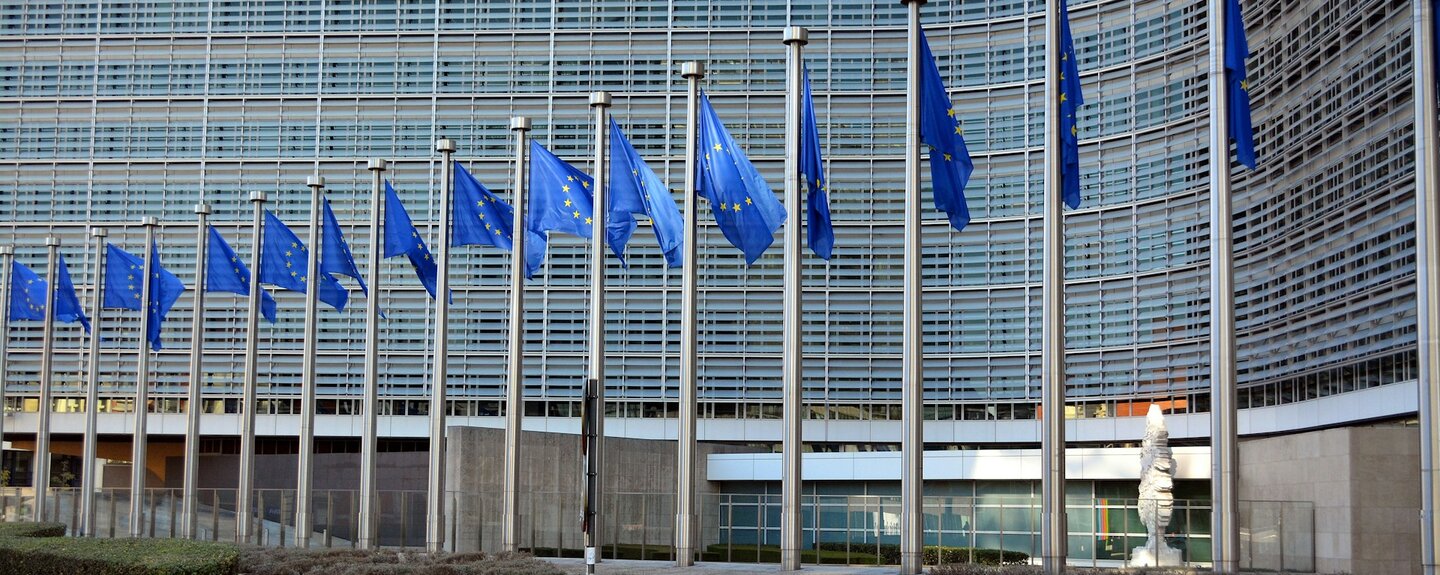Meet the new European Commission – who are the Agriculture and Environment Commissioners?
Last Tuesday 17 September, Ursula von der Leyen unveiled her new College of Commissioners. We’ve taken a closer look at their profiles and mission letters. Here's a snapshot of her new College as well as a profile summary and challenges ahead for two new key Commissioner-designates.
The New College of Commissioners
Following the European Parliament elections in June, Member States were asked to propose both a male and female candidate for the position of Commissioner by the end of August. President von der Leyen then selected the most suitable candidate from each pair and assigned portfolios ranging from Enlargement to International Partnerships, Transport, and Energy & Housing. However, the process encountered delays as many countries only submitted one candidate, often male. Last week, von der Leyen presented a nearly gender-balanced new Commission consisting of 11 women (including von der Leyen herself) and 16 men, with four women holding the more powerful Vice-President positions (out of six in total). If compared with the previous mandate, the new Commission is also younger, with the average age dropping from 56 in 2019 to 52, and newer with only 6 returning Commissioners and 21 new appointees.
Featuring one President, six Executive Vice-Presidents, including the High Representative of the Union for Foreign Affairs and Security Policy, and 20 Commissioners, the new College of Commissioners has an interlinked structure, meaning that the Executive Vice-Presidents will each have a portfolio for which they have to work with other Commissioners.
Several portfolios have been reshuffled. Agriculture and food are now combined and assigned to Christophe Hansen (Luxembourg). Meanwhile, health, food safety, and animal welfare will remain with Olivér Várhelyi (Hungary). Raffaele Fitto (Italy) will oversee agriculture from an economic perspective, and Costas Kadis (Cyprus) will be the first Commissioner dedicated solely to fisheries and oceans, with a mandate to create a “pact for the oceans”. Ursula von der Leyen has appointed Teresa Ribera Rodríguez (Spain) as Executive Vice-President for the green and economic transition, making her one of the most influential roles in the EU. Ribera will be tasked with overseeing competition, implementing the EU’s "Clean Industrial Deal," and leading the charge towards the bloc’s 2040 emissions targets. The portfolio of climate, net-zero, and clean growth has been given to Wopke Hoekstra (Netherlands), with environment, water resilience, and competitive circular economy falling under the responsibility of Jessika Roswall (Sweden). Ekaterina Zaharieva (Bulgaria) will manage the portfolios for startups, research, and innovation.
These 26 nominees are not final, however. All must undergo hearings in the European Parliament, which has the authority to reject any candidate. The new European Commission is expected to take office by November 1 at the earliest, but given the delays, it may not be confirmed until December.
Here are the picks for Agriculture and Environment.
Commissioner for Agriculture and Food: Christophe Hansen
Christophe Hansen, a 42-year-old Luxembourger from a farming family, has been designated as Commissioner for Agriculture and Food. A member of the European People’s Party (EPP), Hansen has served in the European Parliament since 2018, working on key legislation such as the EU’s deforestation rules, the Common Agricultural Policy (CAP), and the Drinking Water Directive. His background equips him with valuable expertise, though there are significant challenges ahead. For this legislative period, he will work under the Executive Vice-President for Cohesion and Reforms, Italian Raffaele Fitto.
In his mission letter, Hansen has been tasked with presenting a "Vision for Agriculture and Food" within his first 100 days in office. This vision will draw upon the recommendations made by the Strategic Dialogue of EU Agriculture and Food, a report created in collaboration with 29 stakeholders and presented to von der Leyen September this year. Central themes in agricultural policymaking include competitiveness, resilience, and sustainability. Hansen will be tasked with implementing a proposed sustainability benchmarking system designed to harmonize methodologies for on-farm assessments, setting a common baseline based on established sustainability standards. Another one of Hansen's pressing responsibilities will be balancing sustainability goals with the needs of farmers – a tension that could resurface, given the protests seen earlier this year. Additionally, he is tasked with drafting a "European Water Resilience Strategy."
Perhaps Hansen’s greatest challenge will be avoiding a narrow focus on CAP structural funds and ensuring he has the latitude to oversee broader policies impacting the agricultural sector, such as nutrition, trade, and climate issues.
Commissioner for Environment, Water Resilience, and a Competitive Circular Economy: Jessika Roswall
Swedish politician Jessika Roswall, a former EU Affairs Minister and member of the EPP, is the Commissioner-designate for Environment, Water Resilience, and a Competitive Circular Economy. She will work closely with Spain’s Teresa Ribera Rodríguez, the Executive Vice-President for a Clean and Just Transition.
In her mission letter, Roswall is tasked with transforming biodiversity into "Nature Credits," a concept similar to Carbon Credits. She will also spearhead the development of a European Water Resilience Strategy, focusing on water protection and pollution prevention. Collaboration with Christophe Hansen on the Vision for Agriculture and Food is another key responsibility. Roswall's portfolio includes forestry, a sensitive issue for Sweden, which is home to some of the EU’s largest carbon sinks. While forestry remains a national competence, the EU provides guidelines and support for sustainable forest management through initiatives like the EU Forest Strategy and the Green Deal. With two-thirds of Sweden covered in forests, any attempt by the Commission to influence forestry policy could face resistance in Stockholm. Roswall will need to balance national interests with European goals, a challenge that is expected to surface during her parliamentary hearings.
Curious to learn more about these portfolios or other Commissioners? Our Public Affairs team is closely monitoring developments – feel free to reach out if you have any questions!











